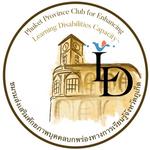ADHD
# Attention deficit hyperactivity disorder
From Wikipedia, the free encyclopedia
(Redirected from [ADHD](https://en.wikipedia.org/w/index.php?title=ADHD&redirect=no "ADHD"))
*"ADD", "ADHD", and "Hyperactive" redirect here. For other uses, see [ADD (disambiguation)](https://en.wikipedia.org/wiki/ADD_(disambiguation) "ADD (disambiguation)"), [ADHD (disambiguation)](https://en.wikipedia.org/wiki/ADHD_(disambiguation) "ADHD (disambiguation)"), and [Hyperactive (disambiguation)](https://en.wikipedia.org/wiki/Hyperactive_(disambiguation) "Hyperactive (disambiguation)").*
| **Attention deficit hyperactivity disorder** |
| ---------------------------------------- |
| [](https://en.wikipedia.org/wiki/File:Primary_Laos2.jpg) |
| People with ADHD may find focusing on and completing tasks such as schoolwork more difficult than others do. |
| [Specialty](https://en.wikipedia.org/wiki/Medical_specialty "Medical specialty") |
| [Symptoms](https://en.wikipedia.org/wiki/Signs_and_symptoms "Signs and symptoms") |
| Usual onset |
| Causes |
| [Diagnostic method](https://en.wikipedia.org/wiki/Medical_diagnosis "Medical diagnosis") |
| [Differential diagnosis](https://en.wikipedia.org/wiki/Differential_diagnosis "Differential diagnosis") |
| Treatment |
| [Medication](https://en.wikipedia.org/wiki/Medication "Medication") |
| Frequency |
| **External video** |
| -------------- |
|  ["Women and girls with ADHD"](https://knowablemagazine.org/article/mind/2020/women-and-girls-adhd), 04.17.2020, with Stephen P. Hinshaw and others,*[Knowable Magazine](https://en.wikipedia.org/wiki/Knowable_Magazine "Knowable Magazine")* |
**Attention deficit hyperactivity disorder** (**ADHD**) is a behavioral and [neurodevelopmental](https://en.wikipedia.org/wiki/Neurodevelopmental_disorder "Neurodevelopmental disorder") [disorder](https://en.wikipedia.org/wiki/Disease#Disorder "Disease") characterized by [inattention](https://en.wikipedia.org/wiki/Inattention "Inattention"), [hyperactivity](https://en.wikipedia.org/wiki/Hyperactivity "Hyperactivity"), and [impulsivity](https://en.wikipedia.org/wiki/Impulsivity "Impulsivity"), which are pervasive, impairing, and otherwise [age inappropriate](https://en.wikipedia.org/wiki/Developmental_psychology "Developmental psychology").[\[1\]](https://en.wikipedia.org/wiki/Attention_deficit_hyperactivity_disorder#cite_note-DSM5-1)[\[2\]](https://en.wikipedia.org/wiki/Attention_deficit_hyperactivity_disorder#cite_note-ICD-11-2) Some individuals with ADHD also display difficulty regulating emotions, or problems with [executive function](https://en.wikipedia.org/wiki/Executive_functions "Executive functions"). For a diagnosis, the symptoms have to be present for more than six months, and cause problems in at least two settings (such as school, home, work, or recreational activities). In children, problems paying attention may result in poor [school performance](https://en.wikipedia.org/wiki/Academic_achievement "Academic achievement"). Additionally, it is associated with other [mental disorders](https://en.wikipedia.org/wiki/Mental_disorder "Mental disorder") and [substance use disorders](https://en.wikipedia.org/wiki/Substance_use_disorder "Substance use disorder"). Although it causes impairment, particularly in modern society, many people with ADHD have sustained attention for tasks they find interesting or rewarding, known as [hyperfocus](https://en.wikipedia.org/wiki/Hyperfocus "Hyperfocus").
The precise cause or causes are unknown in the majority of cases.[\[3\]](https://en.wikipedia.org/wiki/Attention_deficit_hyperactivity_disorder#cite_note-nimh-3) [\[4\]](https://en.wikipedia.org/wiki/Attention_deficit_hyperactivity_disorder#cite_note-4)Genetic factors are estimated to make up about 75% of the risk. Toxins and infections during pregnancy and brain damage may be environmental risks. It does not appear to be related to the style of parenting or discipline.[\[5\]](https://en.wikipedia.org/wiki/Attention_deficit_hyperactivity_disorder#cite_note-5) It affects about 5–7% of children when diagnosed via the [DSM-IV](https://en.wikipedia.org/wiki/DSM-IV "DSM-IV") criteria and 1–2% when diagnosed via the [ICD-10](https://en.wikipedia.org/wiki/ICD-10 "ICD-10") criteria. As of 2019, it was estimated to affect 84.7 million people globally.[\[6\]](https://en.wikipedia.org/wiki/Attention_deficit_hyperactivity_disorder#cite_note-6) Rates are similar between countries and differences in rates depend mostly on how it is diagnosed.[\[7\]](https://en.wikipedia.org/wiki/Attention_deficit_hyperactivity_disorder#cite_note-Jones2011-7) ADHD is diagnosed approximately two times more often in boys than in girls,[\[1\]](https://en.wikipedia.org/wiki/Attention_deficit_hyperactivity_disorder#cite_note-DSM5-1) although the disorder is often overlooked in girls or only diagnosed in later life because their symptoms often differ from diagnostic criteria.[\[8\]](https://en.wikipedia.org/wiki/Attention_deficit_hyperactivity_disorder#cite_note-8)[\[9\]](https://en.wikipedia.org/wiki/Attention_deficit_hyperactivity_disorder#cite_note-9)[\[10\]](https://en.wikipedia.org/wiki/Attention_deficit_hyperactivity_disorder#cite_note-pmid19393378-10)[\[11\]](https://en.wikipedia.org/wiki/Attention_deficit_hyperactivity_disorder#cite_note-Singh-11) About 30–50% of people diagnosed in childhood continue to have [symptoms into adulthood](https://en.wikipedia.org/wiki/Adult_attention_deficit_hyperactivity_disorder "Adult attention deficit hyperactivity disorder") and between 2–5% of adults have the condition.[\[12\]](https://en.wikipedia.org/wiki/Attention_deficit_hyperactivity_disorder#cite_note-Kooij-2010-12)[\[13\]](https://en.wikipedia.org/wiki/Attention_deficit_hyperactivity_disorder#cite_note-underdiagnosed-13) In adults, inner restlessness, rather than hyperactivity, may occur. Adults often develop [coping](https://en.wikipedia.org/wiki/Coping "Coping") skills which compensate for some or all of their impairments. The condition can be difficult to tell apart from other conditions, as well as from high levels of activity within the range of normal behavior.
[ADHD management](https://en.wikipedia.org/wiki/Attention_deficit_hyperactivity_disorder_management "Attention deficit hyperactivity disorder management") recommendations vary by country and usually involve some combination of medications, [counseling](https://en.wikipedia.org/wiki/Psychotherapy "Psychotherapy"), and lifestyle changes.[\[14\]](https://en.wikipedia.org/wiki/Attention_deficit_hyperactivity_disorder#cite_note-NIH2016-14) The British guideline emphasizes environmental modifications and education for individuals and carers about ADHD as the first response. If symptoms persist, then parent training, medication, or psychotherapy (especially [cognitive behavioral therapy](https://en.wikipedia.org/wiki/Cognitive_behavioral_therapy "Cognitive behavioral therapy")) can be recommended based on age.[\[15\]](https://en.wikipedia.org/wiki/Attention_deficit_hyperactivity_disorder#cite_note-:14-15) Canadian and American guidelines recommend medications and behavioral therapy together, except in preschool-aged children for whom the first-line treatment is behavioral therapy alone.[\[16\]](https://en.wikipedia.org/wiki/Attention_deficit_hyperactivity_disorder#cite_note-CADDRA-16)[\[17\]](https://en.wikipedia.org/wiki/Attention_deficit_hyperactivity_disorder#cite_note-CDC_guideline-17)[\[18\]](https://en.wikipedia.org/wiki/Attention_deficit_hyperactivity_disorder#cite_note-APP2019-18) For children and adolescents older than 5, treatment with stimulants is effective for at least 24 months;[\[19\]](https://en.wikipedia.org/wiki/Attention_deficit_hyperactivity_disorder#cite_note-:15-19) however, for some, there may be potentially serious side effects.[\[20\]](https://en.wikipedia.org/wiki/Attention_deficit_hyperactivity_disorder#cite_note-NICE_2009-20)[\[21\]](https://en.wikipedia.org/wiki/Attention_deficit_hyperactivity_disorder#cite_note-Long-term_2015-21)[\[22\]](https://en.wikipedia.org/wiki/Attention_deficit_hyperactivity_disorder#cite_note-Long-term_36-22)[\[23\]](https://en.wikipedia.org/wiki/Attention_deficit_hyperactivity_disorder#cite_note-CNS09-23)
ADHD, its diagnosis, and its treatment have been [considered controversial](https://en.wikipedia.org/wiki/Attention_deficit_hyperactivity_disorder_controversies "Attention deficit hyperactivity disorder controversies") since the 1970s. The controversies have involved clinicians, teachers, policymakers, parents, and the media. Topics include ADHD's causes and the use of stimulant medications in its treatment. Most healthcare providers accept ADHD as a genuine diagnosis in children and adults, and the debate in the scientific community mainly centers on how it is diagnosed and treated.[\[24\]](https://en.wikipedia.org/wiki/Attention_deficit_hyperactivity_disorder#cite_note-Online-24)[\[25\]](https://en.wikipedia.org/wiki/Attention_deficit_hyperactivity_disorder#cite_note-Schonwald-25) The condition was officially known as **attention deficit disorder** (**ADD**) from 1980 to 1987, and prior to the 1980s, it was known as the **hyperkinetic reaction of childhood**. The medical literature has described symptoms similar to those of ADHD since the 18th century.
---
source and more information at: \
[https://en.wikipedia.org/wiki/Attention_deficit_hyperactivity_disorder](https://en.wikipedia.org/wiki/Attention_deficit_hyperactivity_disorder)
* Text is available under the [Creative Commons Attribution-ShareAlike License](https://en.wikipedia.org/wiki/Wikipedia:Text_of_Creative_Commons_Attribution-ShareAlike_3.0_Unported_License); additional terms may apply. By using this site, you agree to the [Terms of Use](https://foundation.wikimedia.org/wiki/Terms_of_Use) and [Privacy Policy](https://foundation.wikimedia.org/wiki/Privacy_policy). Wikipedia® is a registered trademark of the [Wikimedia Foundation, Inc.](https://www.wikimediafoundation.org/), a non-profit organization.


